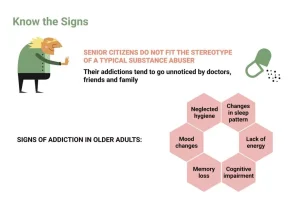
Ultimately, you shouldn’t taper off of alcohol unless you’ve checked with your doctor first. Because of the risk of a lower success rate and prolonged alcohol exposure, most healthcare professionals will recommend a professional detox over tapering. This is why it is important to stop regular, heavy drinking only under the supervision of medical staff.
- Depending on how much you drink, tapering off alcohol can take one to several weeks.
- Understanding your habits and your motivations to quit drinking can help you understand the change you’re making in your life and reinforce why it’s important.
- By setting realistic goals, establishing a tapering schedule, and seeking professional guidance, you are taking proactive steps towards transforming your relationship with alcohol.
- Before you begin an alcohol taper, a little preparation can go a long way, especially when it involves handling your triggers and tracking how much you drink.
- If you feel comfortable doing so, discuss your challenges with your primary healthcare professional.
Symptoms of tapering off alcohol
To create an effective taper, you must know how much you drink daily on average. It can be easy to underestimate how much you drink, and being as accurate as possible is important. Your body has become how to taper off alcohol used to, and dependent on, certain levels of alcohol. Alcohol depresses your nervous system2, so your body creates more receptors for neurotransmitters, or messengers, to stimulate the nervous system.

Insurance May Cover Alcohol Detox
Additionally, mixed drinks may contain sugar or other additives that could exacerbate withdrawal symptoms and should be avoided during the taper. Prolonged and excessive alcohol consumption can impact your brain, causing changes to the neurotransmitter gamma-aminobutyric acid (GABA) receptors. Heavy drinking can lead to a reduction in the sensitivity of your brain to the amount of GABA produced. If you abruptly stop consuming alcohol, your brain may not have enough sensitivity to GABA, which can result in hyper-excitability and withdrawal symptoms.

Challenges of Cutting Down on Alcohol Intake

This process is often referred to as detox and often causes withdrawal symptoms. Over the long term, many health benefits occur throughout your body. Your risk of certain diseases decreases, you will begin sleeping better, and your overall health can significantly benefit. Tapering involves gradually and progressively reducing your alcohol consumption over time. This method can lessen withdrawal symptoms, allowing your body to adjust to decreased alcohol levels slowly. It does, however, result in any withdrawal symptoms that do occur being prolonged over the entire period of the taper.

If it is a mixed drink, it can contain sugar or other additives that should not be included in the taper and may worsen the effects of withdrawal symptoms. Minor symptoms of alcohol withdrawal can start as soon as six hours after the last drink of alcohol. Tapering is the practice of slowly reducing the regular consumption of a substance like alcohol. Tapering can sometimes help a person avoid uncomfortable and sometimes deadly symptoms of withdrawal. Furthermore, they may recommend additional resources such as alcohol withdrawal medication or alternative treatment options to enhance your tapering experience. Support groups like Alcoholics Anonymous can help reinforce your goals and boost your spirits.
How to Safely Taper Off Alcohol
Give your loved ones as much information as you can about your self-tapering strategy. Let them know your plan, your progress, and how withdrawals are going for you. Crystal Raypole has previously https://ecosoberhouse.com/ worked as a writer and editor for GoodTherapy. Her fields of interest include Asian languages and literature, Japanese translation, cooking, natural sciences, sex positivity, and mental health.
- For example, if you choose a weekly schedule, you can aim to reduce your alcohol consumption by a certain percentage each week until you reach your target.
- But if you’re living with alcohol use disorder, drinking is more than a habit.
- The most effective option for alcoholics to stop drinking is to find a treatment program that offers medical detox services.
- When done under medical supervision, tapering off alcohol has few downsides.
- It is important to only attempt a taper while under a doctor’s care.
- It is only advisable to direct taper if the preferred drink is beer with a low alcohol percentage.
- “You may learn things about yourself and about your relationship to this substance that you never even thought about,” he adds.
- They can provide guidance, monitor your progress, and suggest appropriate treatment options if needed.
- Tapering off, also known as controlled drinking reduction, is a method that involves gradually decreasing your alcohol intake over a set period of time.
Did you know most insurance companies will cover the cost of drug and alcohol detox? Ultimately, taking proactive steps towards reducing alcohol consumption can lead to enhanced well-being and a more fulfilling life. Alcohol often serves as a coping mechanism for stress, anxiety, or other emotional challenges. As you taper off, it’s important to find alternative ways to manage these emotions and cope with life’s ups and downs. This can involve exploring new hobbies, engaging in physical activities, practicing relaxation techniques, or seeking professional help if needed.

Because tapering is not the recommended way to stop using alcohol, there is no recommended tapering schedule. If you plan to taper, you must create a schedule that is right for you. That’s why it’s vital to have support while tapering off alcohol. All of these withdrawal symptoms are common during acute alcohol withdrawal syndrome. For example, depression could cause suicidal thoughts, and eating poorly can weaken your immune system. If you feel comfortable doing so, discuss your challenges with your primary healthcare professional.
Rehab Resources
They can provide guidance, monitor your progress, and suggest appropriate treatment options if needed. Making a schedule to slowly reduce your alcohol intake is a safe way to taper off the substance. This will ensure that you are not quitting cold turkey which could result in severe and debilitating withdrawal symptoms or even death. Depending on how much alcohol you’ve been consuming, it can take days or over a week to gradually reduce your dose safely and get off alcohol. When you quit drinking, you should also seek medical advice about any alcohol withdrawal symptoms you experience. This includes early symptoms of alcohol withdrawal, such as mild tremors and anxiety.
Risky withdrawal symptoms are not limited to the above.3 Learn more about alcohol withdrawal here and, once again, speak to a doctor first. Alcohol is a central nervous system depressant that affects your brain. When you quit drinking or wean off alcohol, your body will adjust to the lack of alcohol in your body.